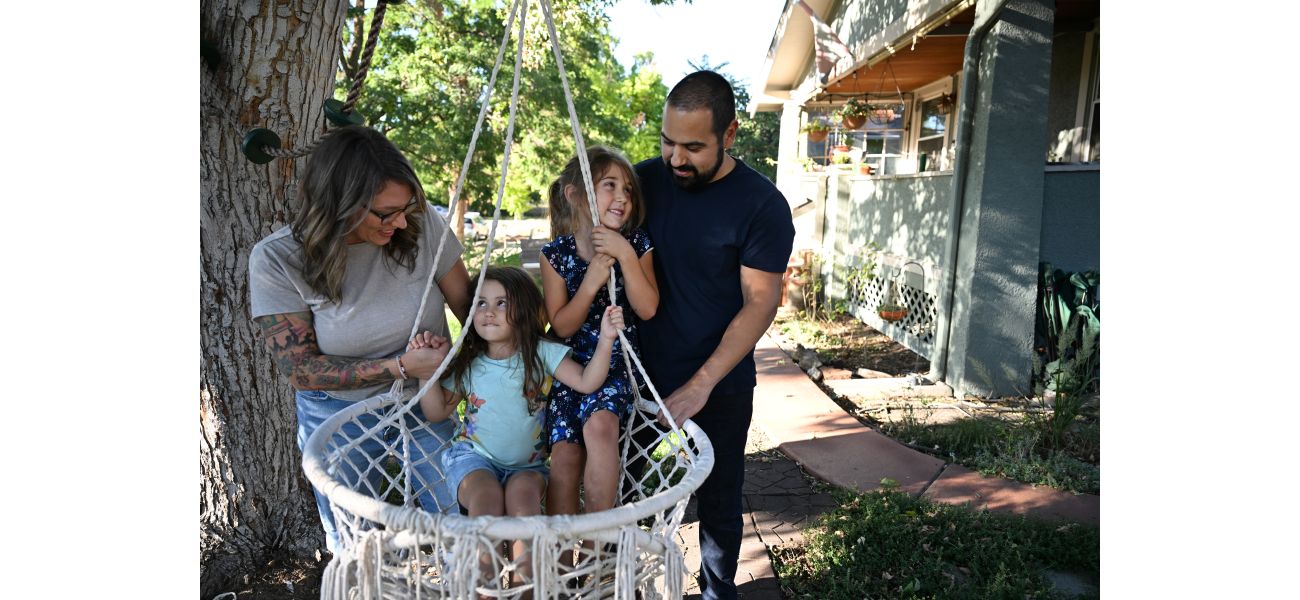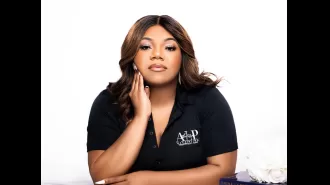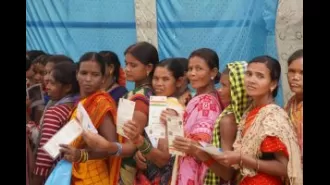Lawsuit in Colorado regarding religious freedom and LGBTQ rights in the state's universal preschool program.
Catholic preschools want exemption from state non-discrimination laws, could go to Supreme Court.
September 22nd 2024.

In today's society, the role of religion in education is a highly debated topic. With the U.S. Supreme Court recently ruling in favor of increased public funding for private religious schools, a lower court case in Colorado has the potential to greatly impact the separation of church and state in education.
The case centers around two Catholic preschools in suburban Denver that are seeking exemptions from state non-discrimination rules based on sexual orientation and gender identity. These preschools are run by parishes and joined the state-funded preschool program, but did not want to be forced to admit LGBTQ children or children from LGBTQ families.
After a trial and a ruling in the state's favor, the preschools are now appealing the decision and the case could potentially reach the U.S. Supreme Court. This lawsuit is just one of several similar cases occurring across the country.
If the Catholic preschools are successful in their appeal, it could result in Colorado children being denied access to certain preschools based on their or their parents' identities. This is a concerning prospect for families like Brittany's, who have a 7-year-old transgender daughter named Naomi.
Brittany, who asked to remain anonymous to protect her family's privacy, is not directly involved in the lawsuit but represents the type of family that could be affected by it. She expressed her distress at the thought of her child being discriminated against, stating that these children are just kids and do not have a political agenda.
In 2023, as Colorado prepared to implement universal preschool, they invited both public and private preschools to participate in the program. This included the St. Mary Catholic Virtue School and Wellspring Catholic Academy of St. Bernadette, the two schools at the center of the lawsuit. This "mixed delivery" approach ensured there were enough seats for all families who wanted one, with about 41,000 4-year-olds currently receiving tuition-free preschool through the program.
However, the Archdiocese of Denver did not allow most of the 36 preschools under their jurisdiction to participate due to the state's non-discrimination agreement. Specifically, the agreement's protections for sexual orientation and gender identity were a sticking point for the Catholic preschools. State officials had mentioned the possibility of allowing religious preschools to reserve some or all of their seats for members of their congregations, but the Catholic schools wanted complete exemption from the non-discrimination rules.
This tension between religious rights and non-discrimination policies is not unique to Colorado. As the U.S. Supreme Court has become more conservative in recent years, they have often ruled in favor of religious liberty claims over arguments for a strict separation of church and state. In the Colorado case, the federal judge ruled in the state's favor, stating that the non-discrimination rules were not meant to invade religious freedom but rather uphold a strongly embraced public value.
For Brittany and other parents, this ruling was a relief. As the mother of a transgender child, she understands the importance of protecting the LGBTQ community from discrimination. Her daughter Naomi has been fortunate to have supportive teachers at her private preschool and now at her public elementary school, where she was able to openly share her gender identity with her classmates without any negative consequences.
Despite concerns about how her in-laws, who are practicing Catholics, would react to Naomi's gender identity, Brittany was pleasantly surprised by their acceptance and support. She hopes that others, including the Catholic preschools involved in the lawsuit, will also choose to support and include the LGBTQ community rather than discriminate against them.
At a time when the U.S. Supreme Court has made decisions to allow more public funding for private religious schools, a recent ruling in Colorado has raised concerns about the impact on the separation of church and state in education. This case, centered around two Catholic preschools in suburban Denver, has the potential to set a precedent for similar cases across the country.
The preschools in question are seeking exemptions from state non-discrimination rules based on sexual orientation and gender identity. The parishes that run these schools filed a lawsuit against the state last year, arguing that they should not be required to admit LGBTQ children or children from LGBTQ families if they join Colorado's state-funded preschool program. After a trial in January, a federal judge ruled mostly in favor of the state, but the preschools are now appealing the decision. This case could ultimately end up before the U.S. Supreme Court.
If the Catholic preschools win their case, it could result in Colorado children being unable to attend certain preschools based on their or their parents' identities. This has already caused distress for families like Brittany's, the mother of a 7-year-old transgender girl named Naomi. Naomi is a happy, art-loving second grader who enjoys playing with her younger sister and reading "Captain Underpants" books. Brittany, who did not want to share her last name for privacy reasons, expressed her sadness and frustration about the lawsuit, stating that it is unfair for children to be discriminated against based on their identities.
The controversy began when Colorado leaders invited both public and private preschools to participate in the state's universal preschool program, set to launch in 2023. Among these schools were St. Mary Catholic Virtue School in Littleton and Wellspring Catholic Academy of St. Bernadette in Lakewood, the two schools at the center of the lawsuit. However, the Archdiocese of Denver, which oversees 36 preschools, refused to sign the state's non-discrimination agreement, which includes protections for sexual orientation and gender identity. The Catholic preschools argued that they should be exempt from these rules due to their religious beliefs.
This debate raises questions about the balance between religious freedom and non-discrimination laws. While the Supreme Court has recently made decisions in favor of religious schools, it has not clearly addressed the issue of whether states can require these schools to follow non-discrimination rules in order to receive public funding. In the Colorado case, the state argued that these rules are necessary to uphold a strongly held public value, rather than to infringe on religious freedom.
Ultimately, the federal judge in this case ruled that the state had met the threshold for neutral and generally applicable non-discrimination rules. This decision was met with relief by parents like Brittany, who has seen how supportive and accepting schools can be for children like her daughter. Despite facing some uncertainty from her in-laws, who are practicing Catholics, Brittany's daughter has been met with love and acceptance from her family and peers.
This case serves as a reminder that children should not be punished or excluded because of their identities. It also raises important questions about the balance between religious freedom and the protection of marginalized communities. As this case and others like it unfold, it will be important to consider the impact on both religious institutions and the students and families they serve.
The case centers around two Catholic preschools in suburban Denver that are seeking exemptions from state non-discrimination rules based on sexual orientation and gender identity. These preschools are run by parishes and joined the state-funded preschool program, but did not want to be forced to admit LGBTQ children or children from LGBTQ families.
After a trial and a ruling in the state's favor, the preschools are now appealing the decision and the case could potentially reach the U.S. Supreme Court. This lawsuit is just one of several similar cases occurring across the country.
If the Catholic preschools are successful in their appeal, it could result in Colorado children being denied access to certain preschools based on their or their parents' identities. This is a concerning prospect for families like Brittany's, who have a 7-year-old transgender daughter named Naomi.
Brittany, who asked to remain anonymous to protect her family's privacy, is not directly involved in the lawsuit but represents the type of family that could be affected by it. She expressed her distress at the thought of her child being discriminated against, stating that these children are just kids and do not have a political agenda.
In 2023, as Colorado prepared to implement universal preschool, they invited both public and private preschools to participate in the program. This included the St. Mary Catholic Virtue School and Wellspring Catholic Academy of St. Bernadette, the two schools at the center of the lawsuit. This "mixed delivery" approach ensured there were enough seats for all families who wanted one, with about 41,000 4-year-olds currently receiving tuition-free preschool through the program.
However, the Archdiocese of Denver did not allow most of the 36 preschools under their jurisdiction to participate due to the state's non-discrimination agreement. Specifically, the agreement's protections for sexual orientation and gender identity were a sticking point for the Catholic preschools. State officials had mentioned the possibility of allowing religious preschools to reserve some or all of their seats for members of their congregations, but the Catholic schools wanted complete exemption from the non-discrimination rules.
This tension between religious rights and non-discrimination policies is not unique to Colorado. As the U.S. Supreme Court has become more conservative in recent years, they have often ruled in favor of religious liberty claims over arguments for a strict separation of church and state. In the Colorado case, the federal judge ruled in the state's favor, stating that the non-discrimination rules were not meant to invade religious freedom but rather uphold a strongly embraced public value.
For Brittany and other parents, this ruling was a relief. As the mother of a transgender child, she understands the importance of protecting the LGBTQ community from discrimination. Her daughter Naomi has been fortunate to have supportive teachers at her private preschool and now at her public elementary school, where she was able to openly share her gender identity with her classmates without any negative consequences.
Despite concerns about how her in-laws, who are practicing Catholics, would react to Naomi's gender identity, Brittany was pleasantly surprised by their acceptance and support. She hopes that others, including the Catholic preschools involved in the lawsuit, will also choose to support and include the LGBTQ community rather than discriminate against them.
At a time when the U.S. Supreme Court has made decisions to allow more public funding for private religious schools, a recent ruling in Colorado has raised concerns about the impact on the separation of church and state in education. This case, centered around two Catholic preschools in suburban Denver, has the potential to set a precedent for similar cases across the country.
The preschools in question are seeking exemptions from state non-discrimination rules based on sexual orientation and gender identity. The parishes that run these schools filed a lawsuit against the state last year, arguing that they should not be required to admit LGBTQ children or children from LGBTQ families if they join Colorado's state-funded preschool program. After a trial in January, a federal judge ruled mostly in favor of the state, but the preschools are now appealing the decision. This case could ultimately end up before the U.S. Supreme Court.
If the Catholic preschools win their case, it could result in Colorado children being unable to attend certain preschools based on their or their parents' identities. This has already caused distress for families like Brittany's, the mother of a 7-year-old transgender girl named Naomi. Naomi is a happy, art-loving second grader who enjoys playing with her younger sister and reading "Captain Underpants" books. Brittany, who did not want to share her last name for privacy reasons, expressed her sadness and frustration about the lawsuit, stating that it is unfair for children to be discriminated against based on their identities.
The controversy began when Colorado leaders invited both public and private preschools to participate in the state's universal preschool program, set to launch in 2023. Among these schools were St. Mary Catholic Virtue School in Littleton and Wellspring Catholic Academy of St. Bernadette in Lakewood, the two schools at the center of the lawsuit. However, the Archdiocese of Denver, which oversees 36 preschools, refused to sign the state's non-discrimination agreement, which includes protections for sexual orientation and gender identity. The Catholic preschools argued that they should be exempt from these rules due to their religious beliefs.
This debate raises questions about the balance between religious freedom and non-discrimination laws. While the Supreme Court has recently made decisions in favor of religious schools, it has not clearly addressed the issue of whether states can require these schools to follow non-discrimination rules in order to receive public funding. In the Colorado case, the state argued that these rules are necessary to uphold a strongly held public value, rather than to infringe on religious freedom.
Ultimately, the federal judge in this case ruled that the state had met the threshold for neutral and generally applicable non-discrimination rules. This decision was met with relief by parents like Brittany, who has seen how supportive and accepting schools can be for children like her daughter. Despite facing some uncertainty from her in-laws, who are practicing Catholics, Brittany's daughter has been met with love and acceptance from her family and peers.
This case serves as a reminder that children should not be punished or excluded because of their identities. It also raises important questions about the balance between religious freedom and the protection of marginalized communities. As this case and others like it unfold, it will be important to consider the impact on both religious institutions and the students and families they serve.
[This article has been trending online recently and has been generated with AI. Your feed is customized.]
[Generative AI is experimental.]
0
0
Submit Comment





